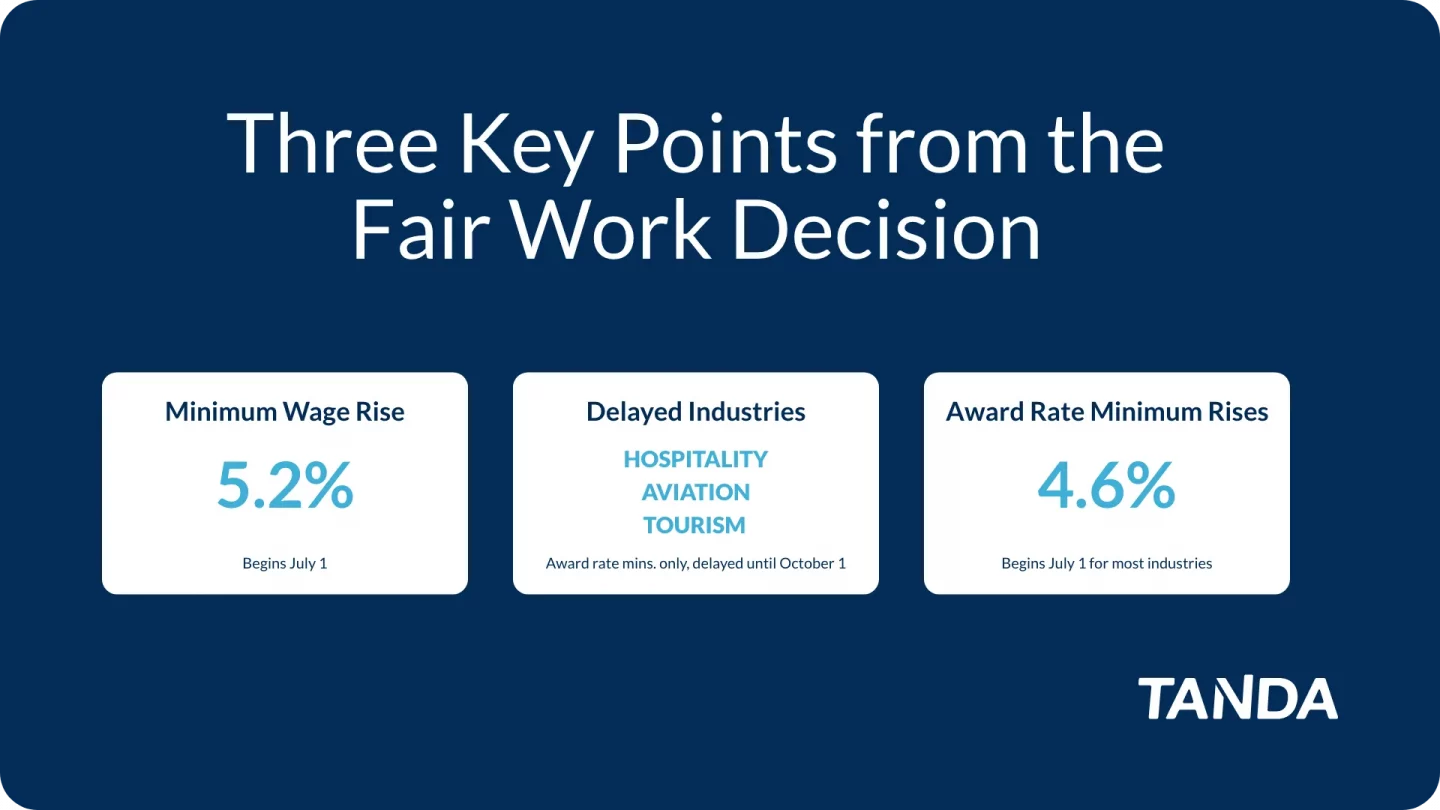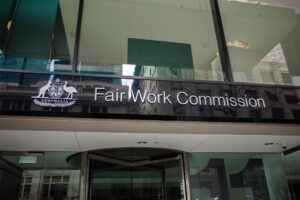The Fair Work Commission has given the green light to the biggest minimum wage increase in decades, increasing the pay packet of Australia’s lowest-earning workers by 5.2% from July 1. It takes the national minimum wage to $21.38 per hour, or $812.60 per week.
The Federal Government formally backed the increase in a submission to Fair Work. Unions had pushed for a higher minimum wage increase of 5.5%, while most businesses argued for an increase of between 2.5-3%. Some business groups lobbied for no increase at all. The decision means the minimum wage will keep pace with inflation, with a tiny pay rise on top. Inflation rose by 5.1% over the year, and the minimum wage will rise ever so slightly faster, at 5.2%.
Australia’s surging inflation remains a core concern for the Fair Work Commission, which acknowledged that large rises in the minimum wage need to be moderated out of concern for adding ‘fuel to the fire’, and spiraling inflation out of control. However, the Commission ultimately came down in favour of a strong increase out of concern lower-paid workers could be left behind as prices go up. It also believes that with low unemployment, the job market is strong enough to withstand the increase.

Inflation On The Rise
In announcing the decision, President of the Fair Work Commission Ian Ross said, “Low paid workers are particularly vulnerable in the context of inflation. Non-discretionary components increased by 6.6% over the year to the March quarter. The increased cost of these items will impact low-income households and those who need the minimum wage increase. We have concluded that these factors make it necessary for a minimum wage increase of 5.2%.”
It shows that while inflation is a core concern for the Commission, it believes that low paid workers shouldn’t cop the brunt of increasing prices.
Importantly, the Commission has also increased the minimum wage in Modern Awards. However, because these workers are paid slightly more than the minimum wage, the Commission decided to increase the Award minimums by a bit less – 4.6%, or $40 a week, whichever is higher.
For most Awards these new rates will come into effect on July 1. However, the Commission has agreed to a special delay for some industries. The Award rate won’t increase in the Hospitality, Tourism and Aviation industries until October 1, 2022.
Staying Compliant
To stay compliant, you must pay the new minimum wage increase exactly from the first full pay period starting after this EOFY, unless your industry is one of the few that has been delayed until October 1. If you’re using Tanda, pay rates will be automatically updated on the exact date they change, and will automatically plug into your payroll system. From here they can be accurately processed in a pay run.
If you’re not using Tanda, remember that some digital workforce management systems may also require you to update the rates manually. This can be done by taking Fair Work’s published rates, and plugging them into your payroll system.
Tanda’s Head of Product Compliance Andrew Stirling will be hosting a Paysure Webinar episode on the wage decision next Thursday June 23 at 11:00 AM AEST. Andrew will comprehensively break down what the decision means for businesses across the country, and explain how to stay compliant. He’ll also look at emerging trends in compliance and the economy more broadly. You can sign up for the webinar here.





